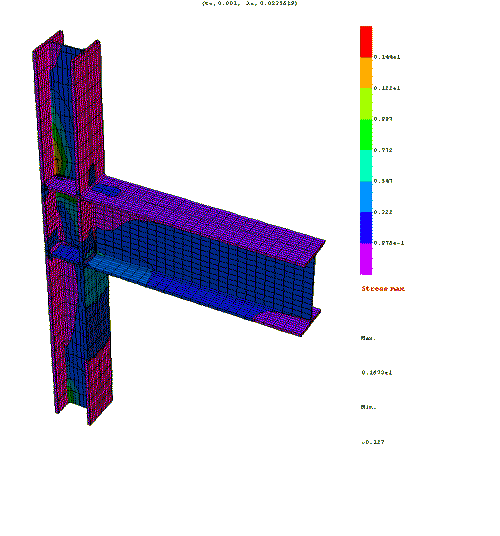Earthquake Loading
Fatigue of structural steel is closely related to the accumulation of plastic strain under cyclic loading and eventually leads to crack formation or even structural failure. Fatigue is very important in seismic design, where for economical reasons localized damage is allowed and structures are subjected to cyclic loading. Usually very rough models are used to access damage accumulation, e.g. accumulated plastic strain or accumulated plastic work. However, using the related package AceGen enables assessment of low-cycle fatigue based on damage mechanics using the fully implicit, quadratically convergent Newton–Raphson procedure.
Here, a three-dimensional finite element for large-strain simulation
is developed based on the Pedersen–Tvergaard material model for cyclic
damage, combining kinematic and isotropic hardening with damage
evolution. This formulation leads to a system of 28 nonlinear
evolution equations for each material (integration) point that must be
solved and consistently linearized—one of the most complex material
models ever implemented implicitly. AceFEM is able to handle it
easily, and the derived numerical model permits a lifespan prediction
of the structural elements for arbitrary loading histories.

Damage to steel structure under earthquake loading
|
|

